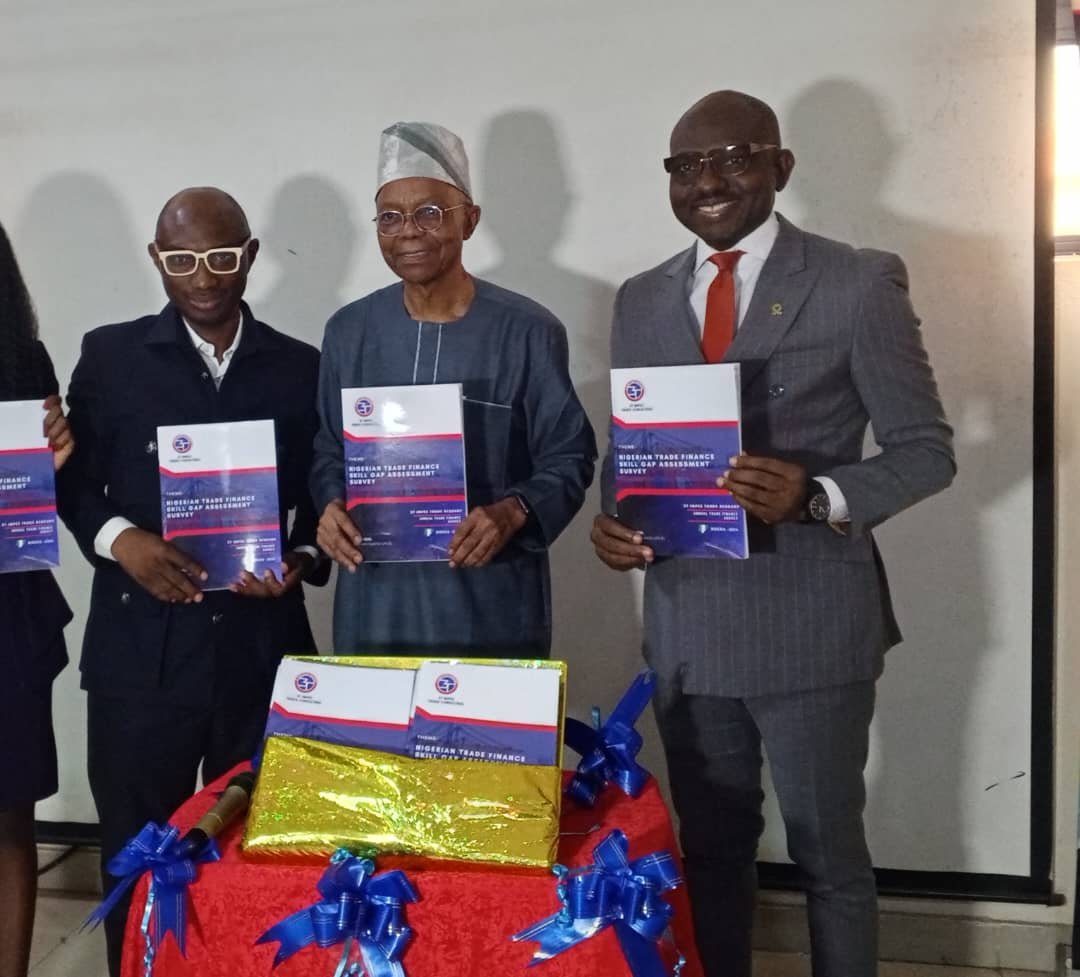Business
Firm X-rays Nigerian Banking Sector Challenges, Advocates Export Training

By Grace Alegba
3T Impex Trade Academy, a trade consulting firm, on Saturday, identified critical skill gaps within Nigeria’s banking sector that were hindering the country’s export trade volume and economic progress.
These skill gaps were identified in the academy’s 2024 survey, titled, “Nigerian Trade Finance Skill Gap Assessment Survey”, which was unveiled in Lagos.
Dr Bamidele Ayemibo, Lead Consultant, 3T Impex Consulting Ltd., during the presentation of the survey, shared insights gathered from 716 banking professionals across 21 banks nationwide.
“This landmark survey has laid bare the existing skill gaps and challenges faced by professionals in the trade finance domain within the Nigerian banking industry,” he said.
Key findings from the survey highlighted significant challenges, including training deficits among 50 per cent of bankers, with only 12 per cent possessing trade certifications in trade services units.
Also, 38 per cent of bankers identified knowledge gaps as a major obstacle in managing international trade operations and financing, while 65 per cent demonstrated experience and knowledge gaps.
Ayemibo emphasised the impact of these skill gaps on banks and Nigeria’s overall trade volume, stressing the urgent need for targeted interventions to address these challenges.
He said that the lack of expertise affected banks and impacted Nigeria’s overall trade volume, which was lagging behind other developing countries with similar or even smaller populations like South Africa.
“The repercussions of this knowledge gap are manifold. Banks, which are pivotal in facilitating international trade transactions, face heightened financial risks due to inadequate understanding of payment methods, trade finance, and risk management.
“This lack of expertise may lead to inaccurate credit assessments. potential defaults and financial losses, thereby compromising the stability and profitability of banks and shaking confidence in the financial system.
“Moreover, inefficiencies in trade documentation, compliance, and understanding of trade rules can result in delays, errors, and non-compliance with regulatory requirements.
“Such shortcomings can tanish the reputation of banks and discourage foreign businesses from engaging in trade with Nigerian counterparts, further dampening the country’s trade prospects,” Ayemibo cautioned.
He further explained the importance of immediate action through tailored training programmes, curriculum enhancements, and policy interventions.
“Bridging these gaps is crucial not only for the growth and competitiveness of Nigerian banks but also for the overall economic development and prosperity of Nigeria,” he said.
Speaking with newsmen, Ayemibo underscored the necessity of a holistic approach to skill gap bridging, aligning banker training with monetary and fiscal policies.
He also emphasised the need for government support in export training to reduce the increasing ignorance of export opportunities among Nigerians, thereby stimulating mass job creation and economic growth.
He stated: “Ignorance of export among Nigerians was also increasing the “Japa” Syndrome, and the government can intervene with supporting export trainings for mass job creation and economic boost.
“There is a very serious need for the fiscal side to begin to consider export readiness for training the citizens, particularly those that have the capacity to be able to produce for export.
“Now the exchange rate is coming down. We need to sustain this tempo by increasing the number of exports.
“This means building capacity and growing the number of exporters in the country.”
Mr Gabriel Idahosa, President and Chairman of the Council at the Lagos Chamber of Commerce and Industry (LCCI), emphasised the significance of balanced trade for Nigeria’s economic prosperity.
“A trade becomes balanced when we are importing and exporting. If as country we are only importing and we are not exporting, then we can never have a balanced trade,” he said.
He advocated regular exports of Nigerian goods, services, culture, and tourism to spur mass employment and increase foreign exchange reserves.
He commended the management of 3T Impex Trade for its contributions to the specialised training.
Akin Morakinyo, Registrar, Chartered Institute of Bankers of Nigeria (CBN), who explained principles of trade balance, highlighted the importance of capacity building on the national development.
He also commended the academy for the survey, while pledging CIBN’s commitment and support to effort on capacity building.
The News Agency of Nigeria (NAN) reports that after unveiling the “Nigerian Trade Finance Skill Gap Assessment Survey”, certificates were presented to the academy’s graduands. (NAN)
Edited by Olawunmi Ashafa
Source
Disclaimer: No copyright infringement intended. All rights and credits reserved to respective owner(s).












